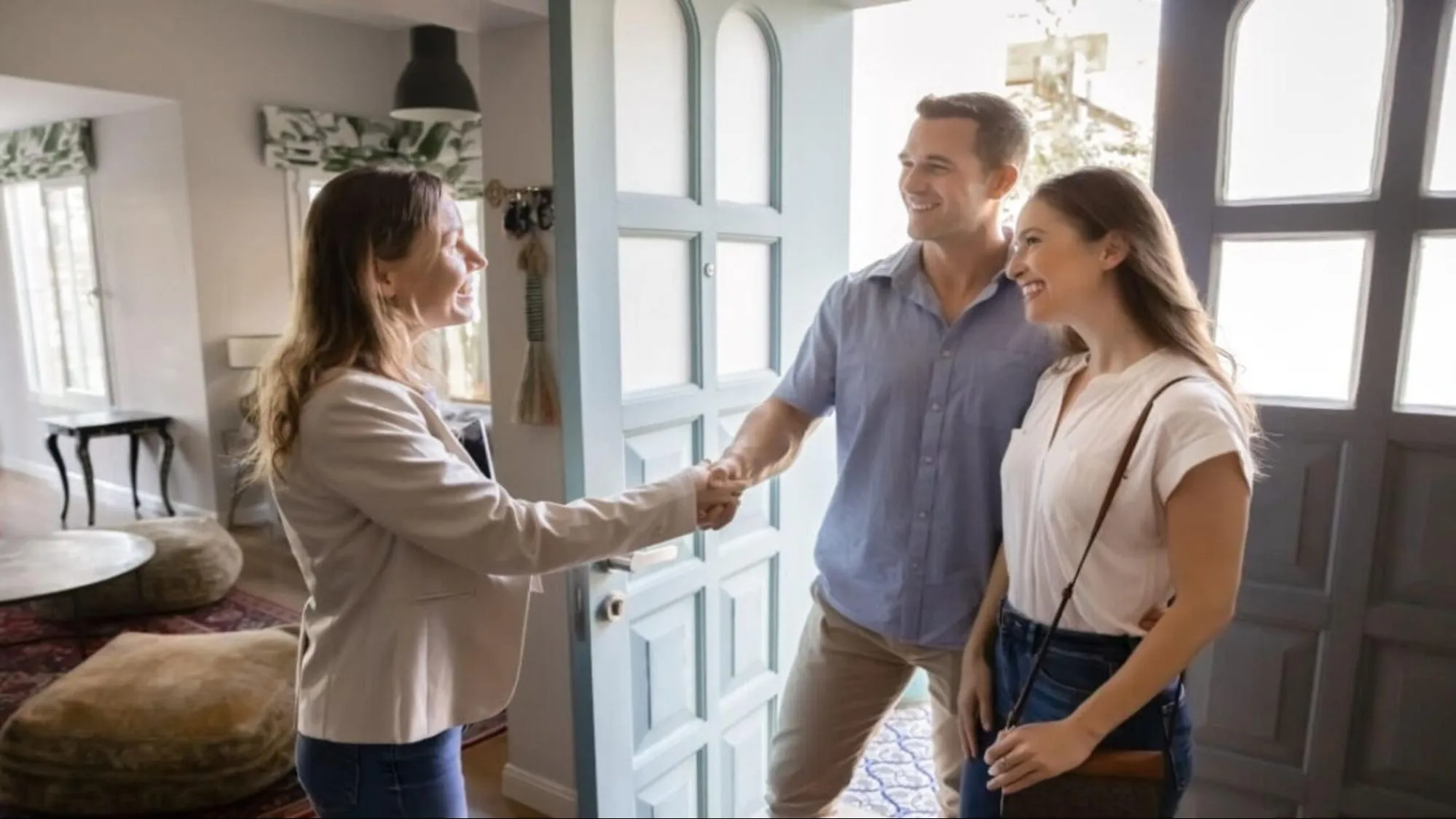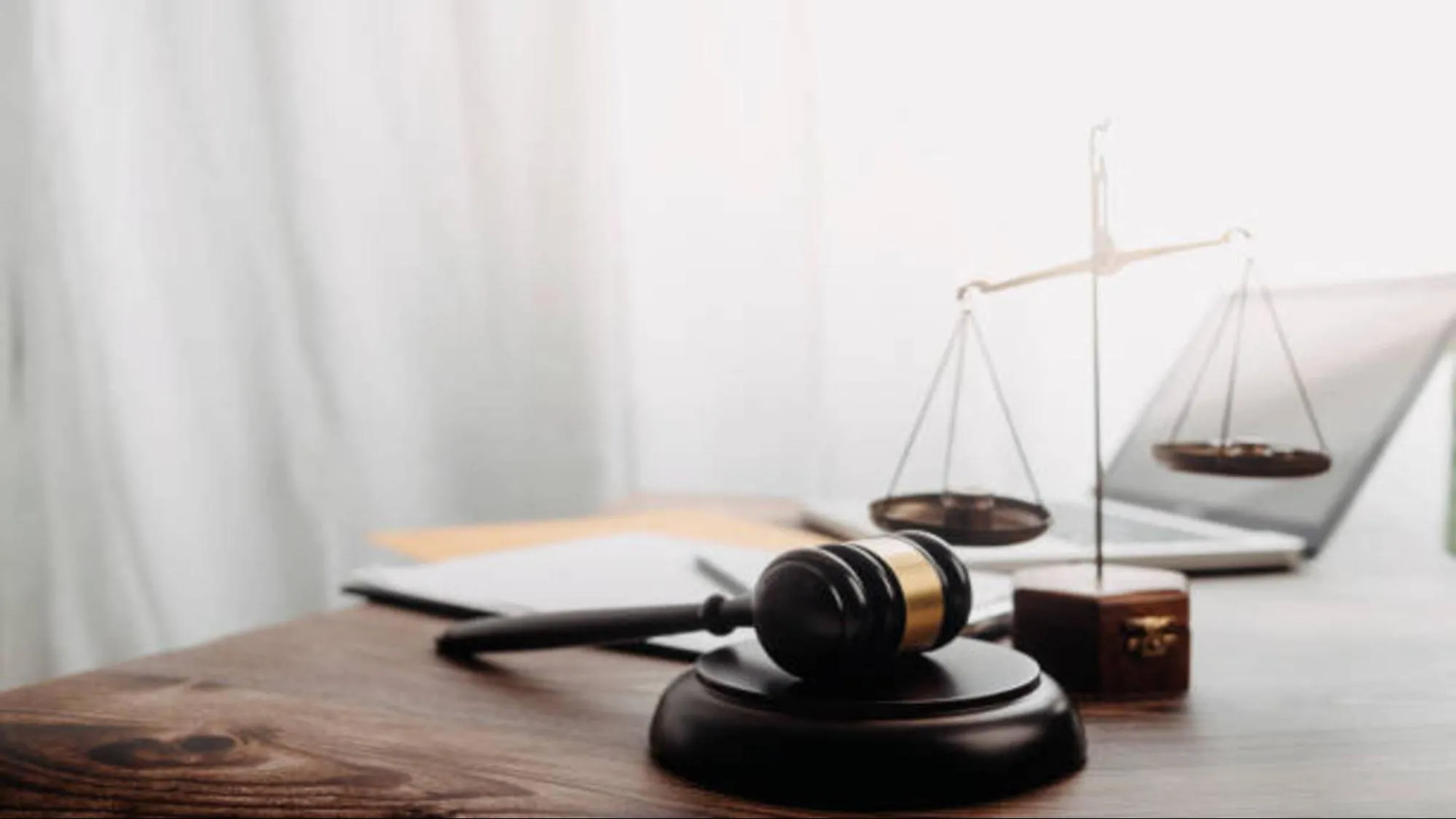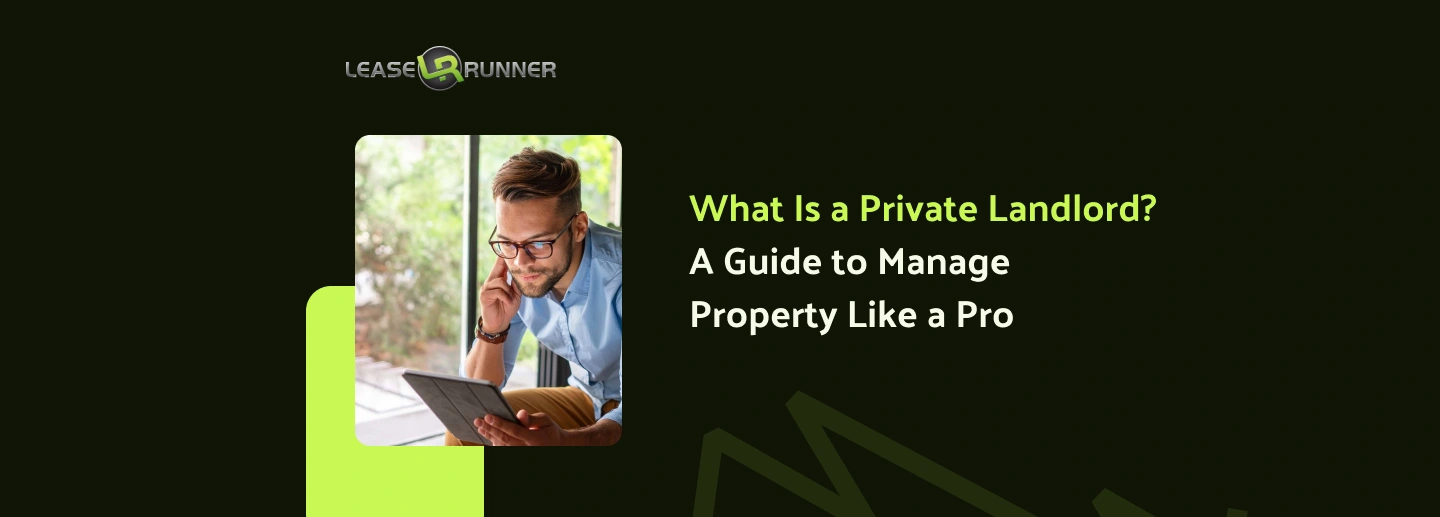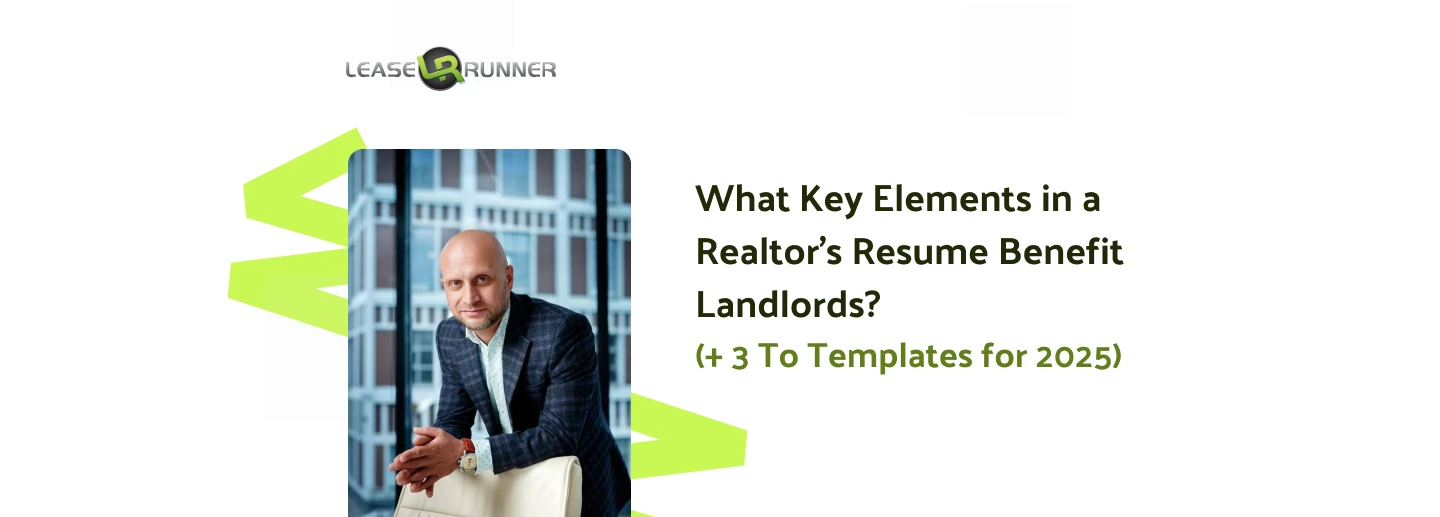
What is a private landlord? The answer might surprise you. These are everyday people, maybe just like you, who rent out their own properties without the layers of a letting agency. In this guide, we’ll show you how to step into the role with confidence and manage your property like a pro.
What Does It Mean to Be a Private Landlord?

Being a private landlord is that you own a rental property and manage it yourself. Unlike large property management companies or real estate firms, you’re directly involved in every step of the rental process. This involves finding and screening tenants, collecting rent, and handling maintenance requests. When you’re a private landlord, the property is your business.
Many private landlords start small, renting out a single home or maybe a duplex, often alongside their own living situation or as a side investment. Over time, some expand and build a larger portfolio of properties, turning their rental business into a significant source of income. But no matter the size of your holdings, being a private landlord means that you have full control over how your property is managed.
This control can be incredibly rewarding because you make the decisions that directly affect your investment. You get to choose the tenants, set the rent, decide on improvements, and handle problems as they arise. If you’re ready to roll up your sleeves and take charge of your rental property, being a private landlord could be a great fit for you.
How Is a Private Landlord Different from a Property Management Company?

At first glance, renting a property might seem the same whether it’s through a private landlord or a big company. But there are some key differences.
Ownership
A private landlord owns the property they rent out. It’s their personal investment, and they often have a strong emotional and financial interest in keeping it in good shape. A property management company, on the other hand, doesn’t own the properties; they manage them on behalf of someone else (usually a landlord or real estate investor).
Day-to-Day Involvement
Private landlords are usually hands-on. They deal directly with tenants, schedule repairs, handle late payments, and inspect the property themselves. Property managers act as middlemen. They take care of all those tasks for the owner and often have teams or systems in place to handle them at scale.
Lease Flexibility
When you rent from a private landlord, there may be more flexibility in lease terms. They can be more open to negotiations like allowing pets, adjusting lease length, or working with a tenant through a rough financial patch. Property management companies typically stick to stricter policies set by corporate procedures or legal teams.
Screening Tools
Do private landlords do credit checks?
Yes, private landlords might use simpler tools when choosing tenants. Property management companies usually follow a strict tenant screening process, with professional tools to run credit checks, eviction history, and income verification.
Legal Oversight
Staying compliant with rental laws is essential, but private landlords might not always be up to date with every regulation. That can lead to accidental mistakes. Property management companies are generally more familiar with landlord-tenant laws and have legal experts or systems in place to avoid issues.
The main difference is how involved they are and who actually owns the property.
Private landlords own their properties and handle everything personally, often with more flexibility but less formal processes. Property management companies don’t own the property but manage it for landlords, using strict rules, professional tenant screening, and legal expertise.
Pros and Cons of Being a Private Landlord
Like any business, it comes with its share of ups and downs. You get full control and rental income but also handle all tenant issues, repairs, and legal responsibilities yourself.
Advantages
You make the rules, choose your tenants, and decide how your property is maintained.
- Higher profit potential: Without paying a management fee, you keep more of the rental income.
- Closer relationships with tenants: Some landlords prefer knowing who’s living in their property and building a good rapport.
- Flexible decision-making: You can adapt your policies, prices, and processes quickly without red tape.
- Learning and growth: Managing your own property can teach valuable business, communication, and maintenance skills.
Challenges
Without property management experience, it can be hard to know the best practices for tenant screening, maintenance, or lease writing.
- Time-consuming: You're on call 24/7 for repairs, tenant issues, and emergencies.
- Legal responsibility: One small mistake can lead to legal trouble, especially if you're unfamiliar with housing laws.
- Emotional stress: Handling late rent, evictions, or property damage can be draining.
How to Become a Private Landlord in 2025 (Step-by-Step)

The rental market in 2025 is buzzing with opportunity and becoming a private landlord can be a smart way to build income and grow your assets. Have you already known how to become a private landlord with clear steps?
Step 1 – Understand Your Local Landlord-Tenant Laws
Before renting out your property, you need to know the rules in your city or state. These laws cover everything from how much notice you must give before raising rent, to rules about security deposits, eviction procedures, and rent control if it applies. They’re designed to protect both landlords and tenants, and staying compliant is non-negotiable.
Take time to visit your local government’s website or consult a real estate attorney who knows your area.
Step 2 – Set Up Your Private Landlord Apartments For Rent
Your property needs to be safe, clean, and ready to live in. Fix anything that’s broken, repaint where needed, and do a deep clean.
A clean, fresh-smelling, and well-maintained home sets the tone and attracts responsible tenants. Sometimes a fresh coat of paint or some landscaping can make a huge difference. Remember, the better condition your property is in, the easier it will be to rent and keep tenants happy.
Step 3 – Use Legal Leasing & Screening Tools
Never rent out your property without a solid, written lease agreement. This document should clearly state the rent amount, due dates, lease duration, tenant responsibilities, and what happens if terms are broken. Make sure the lease follows local laws to avoid disputes.
Screening tenants carefully is just as important. Use trusted screening tools like LeaseRunner that run credit checks, verify rental history, confirm income, and conduct background checks. Picking the right tenants from the start saves you tons of stress later on.
Step 4 – List and Market the Property
With everything ready, it’s time to get the word out. Post your listing on popular rental websites like Zillow, Apartments.com, or local platforms. Use social media and community boards to spread the word.
Remember to respond quickly to inquiries and be available to show the property.
Step 5 – Maintain, Communicate, and Keep Records
Once your tenant moves in, the real work begins. Be prompt with repairs, answer tenant questions, and keep the lines of communication open. Regular maintenance helps prevent bigger problems down the road and shows tenants you care.
Keep detailed records of rent payments, repairs, inspections, and all communication. This documentation can protect you legally and helps keep everything organized.
Legal Responsibilities of Private Landlords

You must follow the law and make sure your tenants live in safe, fair conditions. Staying compliant protects both you and your tenants.
Comply with Fair Housing Laws
Fair housing laws are to treat every potential tenant equally. What landlords cannot do is discriminate based on race, religion, gender, disability, family status, or other protected categories. Use consistent screening processes and avoid language in ads that could be seen as discriminatory.
Provide Safe, Habitable Living Conditions
Your rental must meet basic health and safety standards. That means working plumbing, electricity, heating, ventilation, and a structure that’s secure and clean. If something breaks, fix it quickly. Tenants have the right to a safe place to live.
Follow Lease, Security Deposit & Eviction Laws
Stick to your lease terms, and make sure your deposit rules and eviction notices follow state law. In most areas, you need to return a deposit within a certain number of days and give legal notice before ending a lease or evicting someone. Slipping up here can land you in court.
When Should a Private Landlord Consider Hiring a Property Manager?
Hiring a property manager can be a smart move, particularly if:
- You own multiple properties
- You live far from your rental
- You don’t have time to manage repairs and tenants
- You’re struggling with late payments or difficult tenants
- You want a more passive income stream
A good property manager handles everything from advertising to maintenance to legal compliance. Yes, it costs money, but it can save time and stress!
What Do Private Landlords Typically Ask Tenants For?
What do private landlords ask for?
Before accepting a tenant, private landlords will usually collect certain information to protect themselves and their property.
Rental Application Essentials
Some key information are full name, employment details, income, previous addresses, landlord references, and contact information. It helps private landlords decide if the tenant is reliable and financially stable.
Background & Credit Checks
Most landlords run credit and background checks to spot red flags like late payments, evictions, or criminal history. It’s a common part of the process and gives landlords peace of mind.
Deposits and Application Fees
You’ll likely need to pay a security deposit (usually one month’s rent) and possibly an application fee. These fees help cover the screening costs and protect the landlord if the tenant damages the property or skips out on rent.
What Should Tenants Know When Renting from a Private Landlord?

Renting from a private landlord often feels more personal and direct compared to renting through big companies or agencies. You might get quicker responses and a friendlier experience but it also means it’s important for tenants to stay well-informed and protect themselves. Here’s a clear guide on what every renter should know before and during their tenancy:
Tenancy Agreement
The foundation of any rental relationship is a solid, written lease or tenancy agreement. This document is your legal safety net. It should spell out important details like:
- How much rent you’ll pay and when it’s due
- How long the lease lasts (e.g., 6 months, 1 year)
- Who is responsible for repairs and maintenance
- Rules about pets, smoking, or guests
- What happens if either party wants to end the lease early
Never sign a lease if you don’t understand all the terms. Take your time to read it thoroughly, ask questions, or even get a trusted friend or legal advisor to look it over.
Deposit Protection
When you move in, you’ll likely be asked for a security deposit, usually equal to one month’s rent or more. This is to protect the landlord in case of damage or unpaid rent. But good news: in many areas, landlords are legally required to keep your deposit safe in a government-approved protection scheme.
What does this mean for you? It means your money is held securely, and you have a fair chance to get it back at the end of your lease, as long as you leave the place in good condition. If your landlord wants to keep any of the deposit, they must provide evidence and follow legal steps. Always ask your landlord about the deposit protection scheme they use and get this information in writing.
Repairs and Maintenance
Private landlords must keep the property safe and livable.
At the same time, tenants should allow reasonable access for landlords or repair workers to enter and fix things. Private landlords have a responsibility to address repairs promptly, within a reasonable time frame (often specified in the lease or by local laws). You can try to search some landlord friendly states.
Most leases also state how much notice landlords must give before entering your unit (usually 24-48 hours). Respecting this process keeps the relationship smooth and professional.
Safety Policy
Safety matters a lot when it comes to rentals. Your home should have working smoke alarms on every floor, carbon monoxide detectors if required by law, and secure locks on doors and windows. There should be no major hazards like exposed wiring, mold, or structural damage.
Don’t hesitate to ask your landlord about the safety features in your rental before signing the lease. If you notice anything unsafe after moving in, report it immediately. A responsible landlord will act quickly to fix safety issues, because it protects everyone involved.
Identifying Legitimate Landlords and Properties
Unfortunately, rental scams exist, so it’s important to be cautious.
- Always visit the property in person before signing anything or sending money.
- Never wire money or pay cash upfront without a signed lease.
- Verify you’re dealing with the real owner by asking for ID or checking property records online.
- Watch out for deals that seem “too good to be true” or landlords who pressure you to decide quickly.
Ending the Tenancy
When it’s time to move out, both tenants and landlords must follow legal notice periods and procedures. This is usually outlined in your lease and local laws. Commonly, tenants must give 30 days’ notice, but it varies.
To get your security deposit back in full:
- Give proper notice in writing
- Leave the property clean and undamaged (normal wear and tear is expected)
- Return all keys and access devices
Document the condition of the property before you leave (photos or a walkthrough with your landlord).
Bottom Line
Now you know what is a private landlord. It’s not always easy, but with the right approach, it can be one of the most flexible and empowering ways to grow your wealth and provide quality housing. Start learning how to become a successful private landlord with LeaseRunner today!
FAQs
Q1. How to become a private landlord?
To become a private landlord, you need to own a rental property and manage it yourself. Start by understanding your local landlord-tenant laws, getting the property ready to rent, and using proper leasing and screening tools. You'll also need to list your property, handle tenant communication, and stay on top of maintenance and legal responsibilities. It’s a hands-on role.
Q2. Do private landlords do credit checks?
Yes, many private landlords do credit checks. While some may rely on personal judgment or references, most responsible landlords want to know a tenant’s financial background before signing a lease. Credit checks help assess reliability, past payment behavior, and overall financial health.
Q3. How to find a private landlord?
To find a private landlord, check local rental listings on sites like Craigslist, Facebook Marketplace, Zillow, or local classifieds. Look for listings that mention “no agency” or “rent directly from owner.” You can also ask around in community groups, real estate meetups, or neighborhood boards.







